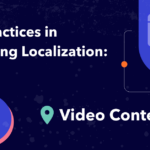Legend holds that the first thing to be sold online, through ARPANET, the seventies’ precursor to the modern internet, in a deal struck between students at Stanford and MIT, was … a small bag of weed.
In the late nineties and early aughts, when online shopping began to enter the mainstream, people were worried that their credit cards could be stolen and their accounts completely emptied out. Now that we’re used to it, we’re more concerned that our orders might arrive a bit late or get lost in transit.
It’s easy to lose sight of the value of customer interaction when all you’re doing is running a website, but exceptional customer service has become a key driver of e-commerce growth. After all, when you’re worried about a Christmas gift that might not make it in time, customer service is what stands between angry customers and happy ones that keep coming back.
On the dark web, however, customer service takes on a whole new dimension. Sellers are anonymous, so there is no brand trust, and the stakes are higher because a bad product could leave customers in the hospital, police custody, or worse.
An unstable market
The dark web does a brisk business, but it’s definitely not a stable one. When the owner of Silk Road, William Ulbrecht, was arrested by the FBI, in 2013, at the age of 29, he was estimated to be making $20,000 US a day in commission on his site’s sales.
Ulbrecht created Silk Road in accordance with his own ideals, writing a code of conduct that declared, ”We refuse to sell or list anything the purpose of which is to harm or defraud another person,” and, “Treat others as you wish to be treated.” This message helped Silk Road become the biggest marketplace on the dark web, but there have been a lot of them.
Like eBay or Amazon, dark web marketplaces connect buyers and sellers. Some hold payments in escrow to provide more security for buyers, and they all offer various rating systems to help sellers to grow their reputations.
But his utopian message hasn’t been followed by others. In March 2015, marketplace Evolution decided that it was more profitable to abscond with the $12 million dollars’ worth of customers’ bitcoins it had been holding in escrow than it was to keep trading. The problem with buying drugs with bitcoin is that you can’t go to court or approach your credit card company for a refund. The dark web has no regulatory systems to ensure people behave in the way they’re supposed to.
These so-called “Exit Scams” have become widespread in the last few years. In this volatile atmosphere of anonymity and fraud, how do traders on the dark web assure their customers that they are legitimate? (It goes without saying that in this context, legitimate is an extremely relative term.)
Researchers at the London School of Economics found that the average lifespan of a dark web trading platform is 426 days, in large part due to those exit scams as well as to the fact that, as markets grow, they attract more attention from law enforcement. As a result, there are no trusted brands or intermediaries who guarantee purchases in the way eBay or Airbnb does for its sellers and hosts.

How do dark web sellers appear trustworthy?
What’s remarkable about most dark web store fronts is how familiar they feel to people used to shopping for legitimate products online. They offer loyalty schemes, limited-time offers, and multiple-purchase deals recognized by shoppers all over the world. They do everything they can to look as legitimate as possible, and emphasize how much the customer matters to them.
Nothing matters more to a dark web seller than their rating. Dark web platforms use the same rating system that eBay, Uber, and Airbnb have made us grow accustomed to, but here it matters even more.
We may take a look at an eBay or an Amazon Marketplace seller’s rating, but we also know that, should there be any problem, we can take it up with the platform. On the dark web, the risks are much higher — the wrong product could have a severe impact on your health, sloppy packaging could end up getting you arrested, and, if you get conned, there’s really no one to complain to. So, in order to attract customers in this high stakes and very competitive situation, you need the highest possible rating.
This may help to explain why drugs bought on the dark web tend to be much purer than drugs bought on the street. The Spanish think tank Energy Control found that 50% of cocaine bought online was pure, compared to only 14% of cocaine bought on the street.

Building illegal brands
Without the option of being transparent with their customers or any way to directly advertise, dark web sellers have to double down on their commitment to customer service. They provide customers what they want and give them great customer service. They explain in detail how they deliver their packages securely and discreetly. Some even brand themselves as organic, ethical, or conflict-free to attract values-based consumers.
Some of the sellers take their branding so seriously that that they forget what they do is still illegal. In 2016, Ryan Burchard was caught by the police after using his real name to register the trademark of his dark web drug company, “Cali Connect,” with the government. When police raided his home, they found branded clothing. It won’t shock you to learn that he’s now in prison.
It’s important to consider the context that these brands and ratings exist in. Dark web dealers are competing with street dealers, who drum up business through personal connections. This means that street dealers are rarely compared with each other, and because finding a new one can be difficult there customers will put up with a lot before they find someone new. In this context, someone with thousands of glowing reviews and an in-depth explanation of how they keep you safe is a very compelling proposition.
Of course, when ratings trump all else, there are huge barriers to entry in the market. After all, who wants to be the guinea pig for a rookie drug dealer? This means that it is common for new dealers to buy their own drugs through platforms in order to leave positive reviews and boost their reputation. There are also people on the dark web who list their services as reviewers for hire. I suppose we shouldn’t be too surprised that drug dealers aren’t entirely honest…
Of course, review padding is common in the legitimate world too, particularly in the cut throat world of Trip Advisor. Amazon even went as far as to sue over 1,000 people who offered their services as fake reviewers for hire to boost products.
While we can’t totally rely on reviews to give us the honest truth, they do seem to help motivate excellent customer service on the dark web.
What can we learn from the dark web?
Customer service has become key for dark web sellers to stand out in crowded markets and to build trust with potential customers. This is a disturbingly big issue for dark web sellers of personal data, which have employed “loyalty programs” such as “100% satisfaction guarantee” offers. If the stolen card has already been cancelled, the seller will replace it with a still-functional card as quickly as possible.
Jamie Bartlett, author of The Dark Net, argues that “The real secret of Silk Road is great customer service.” This is echoed in research by Nicholas Christin of Carnegie Mellon University, who found that 97.8% of reviews on Silk Road were four or five stars, and it’s fair say that most companies would be extremely happy with a 97.8% CSAT.
Dubious as the dark web may be, it’s safe to say the effort sellers put in to listen to their customers and solve their problems is admirable.
Maybe there is such a thing as honor among thieves.
The post Customer Service after hours: what the Dark Web can teach us appeared first on Unbabel.











